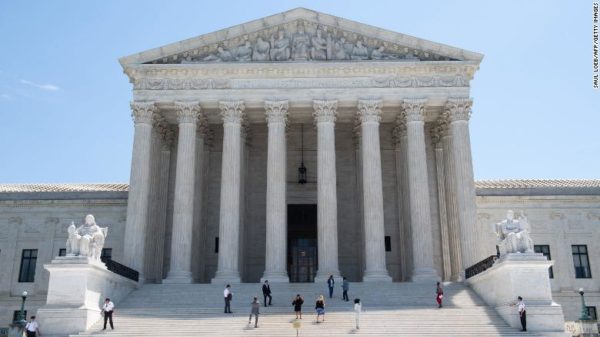Washington (CNN) – The Supreme Court on Wednesday struck down a Tennessee residency requirement law that requires individuals to live in the state for two years before obtaining a retail license to sell alcohol, a ruling that could give a boost to a large chain of liquor retailers in Tennessee and other states.
The 7-2 ruling is a loss for the Tennessee Wine & Spirit Retailers Association, a trade group of in-state retailers, that argued that the law was legal under the 21st Amendment that bolstered a state’s authority to regulate alcohol.
But critics, including a national chain, said the law amounted to discrimination against out-of-state residents in violation of principles of the commerce clause.
Justice Samuel Alito, joined by Chief Justice John Roberts, Ruth Bader Ginsburg, Stephen Breyer, Sonia Sotomayor, Elena Kagan and Brett Kavanaugh, said that while the 21st Amendment gives “each state leeway in choosing the alcohol-related public health and safety measures that its citizens find desirable,” it is “not a license to impose all manner of protectionist restrictions on commerce in alcoholic beverages.”
“Because Tennessee’s 2-year residency requirement for retail license applicants blatantly favors the State’s residents and has little relationship to public health and safety, it is unconstitutional,” Alito wrote.
The case presented the high court with a rare opportunity to scrutinize the scope of the 21st Amendment that ended Prohibition and gave states broad authority to regulate alcohol.
“Today’s decision reinforces the Supreme Court’s skepticism of state laws that tend to favor businesses owned by in-state residents over those owned by out-of-state individuals,” said Steve Vladeck, CNN Supreme Court analyst and professor at the University of Texas School of Law.
“Although states remain free to give some benefits to their own residents, such as in-state tuition, the Court has increasingly worried about laws that discriminate between different commercial enterprises, an issue that, as this ruling suggests, does not tend to break down along partisan or ideological lines,” Vladeck wrote.
Total Wine, a chain retailer in 23 states, sought to operate a store in Knoxville, Tennessee, and challenged the law that required individuals operating liquor stores to have lived in the state for two years. The license couldn’t be renewed until the individual had been a resident for 10 years.
The Tennessee Wine & Spirits Retailers Association argued the law was justified under the 21st Amendment that was passed in part to give states broad authority to regulate alcohol. They argued the alcohol is unique, and not subject to regular commerce clause scrutiny.
The association’s lawyers acknowledged states cannot discriminate against “out of state products” without running afoul of commerce clause principles but said the law at issue applies to “in state” retailers.
They said the law was passed to increase the odds that liquor retailers will sell responsibly and will make it harder to open a liquor store.
Total Wine’s lawyer, Carter Phillips, argued the restrictions in the law are “by far the most onerous” with the “only conceivable purpose” of excluding non-resident owners from Tennessee’s market and protecting in-state retailers from competition.
Phillips noted the state did not vigorously defend the law, so retailers had to step in.
He said the Supreme Court has “made clear that the Twenty-first Amendment was not intended to save laws that have no purpose other than protecting in-state businesses.”
Gorsuch, joined by Thomas, dissented from the case.
“Alcohol occupies a complicated place in this country’s history,” Gorsuch wrote. He acknowledged Tennessee’s residency requirement “reduces competition in the liquor market by excluding nonresidents or recent arrivals.” But he said that effect “might serve a legitimate state purpose by increasing the price of alcohol and thus moderating its use, an objective States have always remained free to pursue under the bargain of the Twenty-first Amendment.”
Thirty-four States and the District of Columbia supported Tennessee and argued it was “vital” for states to have the authority to regulate the sale of alcohol because they realize that “excessive alcohol consumption poses great risks to local health and safety and that the liquor market is uniquely susceptible to infiltration by criminal elements.” Some 20 states have laws similar to Tennessee.
Article Credited to: Ariane de Vogue and Kate Sullivan, CNN






